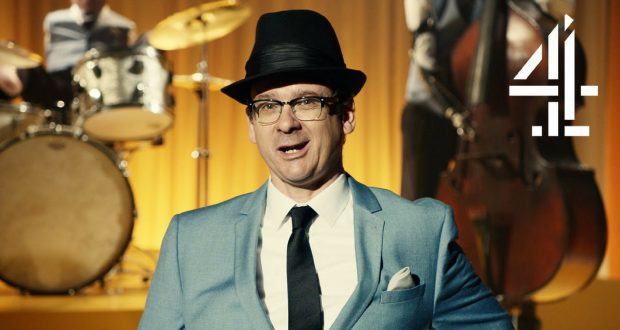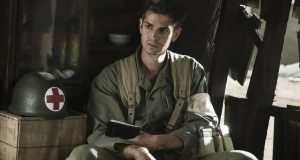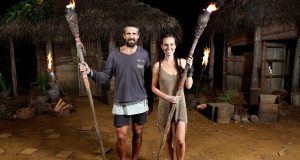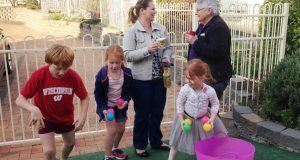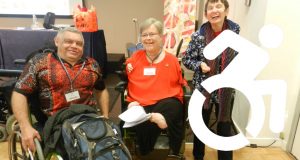Behind the jaw dropping feel-good anthem of the 2016 Rio Paralympics is local Brisbane musician Tony Dee: Queensland Baptist client service officer by day, superhuman singer by night. Ashley Thompson talks to Tony about faith, music and disability inclusiveness.
Launched in July, United Kingdom broadcaster Channel 4’s promotional trailer for the September 2016 Paralympics “We’re the superhumans” has reached extraordinary levels of online success: amassing over 33 million views across all of its social platforms with an impressive 2.16 per cent Twitter engagement rate—the latter figure eclipsing BBC Sport’s Rio Olympics campaign trailer “The greatest show on earth”.
While these social insights may sound meaningless to anyone outside the advertising industry, they are having a profound impact on one Brisbane local: Tony Doevendans, known professionally by his stage name Tony Dee.
In a worldwide search for a lead singer to cover Sammy Davis Jr’s triumphant “Yes I Can”, Tony—a wheelchair-user born with spina bifida—was chosen from thousands of applicants to front The Superhuman Band ensemble and spectacularly styled musical ad.
A worship leader and musical theatre amateur, Tony has been singing in charismatic Queensland Baptist and Pentecostal congregations for nearly 25 years. Since his international debut, Tony—who currently attends Nexus Church in north Brisbane—has featured in The Guardian, The Courier Mail, ABC News, The Catholic Leader, Coaching Life magazine, The QB and Channel 7’s morning show Sunrise to name a few—an overwhelming amount of press for the self-proclaimed introvert.
“I want to be known as someone who encourages and puts a smile on people’s faces through my music,” Tony says simply. “The Paralympics is certainly one good outlet for showing people what people with disability are capable of, it’s not the only one but it’s a good one.”
To Tony, disability bears little mention when asked to describe himself—words like husband, father, musician and Jesus-follower taking precedence.
Gotta testify
Like many who grew up in a Christian family, Tony went through “what some might call the usual teenager rebellious years”.
“I don’t know whether it was rebellion or more I just didn’t really understand God from a personal or loving point of view,” reflects Tony. “I thought God was out to get me or just ready to jump on my mistakes.”
Kept in church only by his obligation to run the overhead projector during worship, it wasn’t until a visiting preacher talked about “trying to live the Christian life without Christ” that Tony realised he was “trying to do everything in [his] own strength” and that “God actually had to be a part of [his] life in order to help him”.
“For many years I struggled with [my disability] and would have liked to have had different circumstances,” says Tony. “For a while I saw it as an excuse to believe that God didn’t really love me—but that sort of went out the window when I had so much proof that God loves me for who I am.”
From this moment on, prayer and quiet time for Tony no longer became about “earning God’s approval” but rather a desire to spend time with him.
Following a career in administration at Youth with a Mission and at his local church office, in 2004 Tony proposed to his now wife Caroline the day after he was offered a job in finance at the Queensland Baptist head office, becoming, in the process, a step-father to her two young children.
While it may be surprising to anyone who has heard Tony sing that he’d be earning his living any other way, he explains: “It’s a process. With a part-time job and part-disability pension I have to watch what I earn and report it.”
Equipment and licensing are also a consideration, yet Tony can hardly hide his excitement when speaking of the future, “I want to record, I’d love to record”.
Respect, just a little bit
For those who have witnessed the slow but increasing representation of people with disability in Australian media, few could forget late Australian comedian and disability rights activist Stella Young’s ingenious TEDxSydney Talk “I’m not your inspiration, thank you very much”.
Like Tony Doevendans, Stella used a wheelchair most of her life but was otherwise, in her own opinion, unremarkable. Yet Stella constantly found herself being congratulated by strangers for “simply existing” and was not okay with being objectified for what she called “inspiration porn”.
“I have a little trouble with the inspiring tag,” Tony agrees. “Years ago I remember being told, ‘Oh isn’t
it good to see someone like you out and about’ because,
you know, I drove my car.
“It should be just assumed we can get out and about and if we can’t then there’s something wrong with the way the community is functioning.”
Tony speaks highly of the churches he has attended for their inclusion of people with disability—which to him relies heavily on wheelchair accessibility and the consideration of his fellow congregation members.
In addition to being consulted in the planning of church extensions, Tony also appreciates it when people do things like “move chairs out of the way so I can be part of the congregation and not stick out on the side”.
“One thing I’d steer clear of if I were an [able-bodied] congregation member is asking to pray for people with visible disabilities. I’ve had complete strangers at churches I’ve visited for the first time say to me, ‘I believe God’s going to heal you in the next week’.
“It’s not ‘off-putting’—because you can’t put me off God—but it puts a bit of a burden in the heart.”
Tony also recommends exercising caution for those who have the burning desire to ask “how did it happen?”
“I know one guy who lost his arm in an industrial accident and so [that question] can be very traumatic,
it can be like asking the person to relive the incident if they lost an ability accidentally.
“At least have a relationship before you go asking questions like that.”
Other faux pas include verbose stances on either side of the abortion debate in the presence of a person with disability, particularly where a disability has been identified in a foetus.
“I was at a pro-life rally and somebody said to me, ‘It’s better than being dead, eh!’ and I said, ‘Well yeah
it is, thank you very much’.
“There’s always other means of support available—even if they may be at first hard to see—for the child to be raised to live a good and healthy and worthwhile life.”
In general Tony is empathetic towards the curiosity of strangers. For the persistently nosy however, Journey recommends the wheelchair episode of ABC iView’s You Can’t Ask That series.
Take me to church
Surprisingly, but consistent with character, when asked what attributes he looked for when choosing a church, wheelchair accessibility doesn’t garner a mention.
“I’d say good biblical teaching, vibrant worship accessible to everybody (young or old) and a church where when people pray they expect answers,” says Tony. “As opposed to it just being something you do.”
In a behind-the-scenes exclusive of the “We’re the Superhumans” campaign, Tony Doevendans told Channel 4, “The point of superhuman is saying to me, I can do so much more than I ever dreamed or expected.”
What he may have added upon deeper probing is “through Christ, who gives me strength”.
Watch the 2016 Rio Paralympics trailer on the UK Channel 4’s Facebook page or YouTube channel. Free-to-air coverage of the games will be held 7–18 September on The Seven Network.
Follow Tony Dee’s singing career at facebook.com/tonydeemusic
 JourneyOnline
JourneyOnline
